Tomb 97
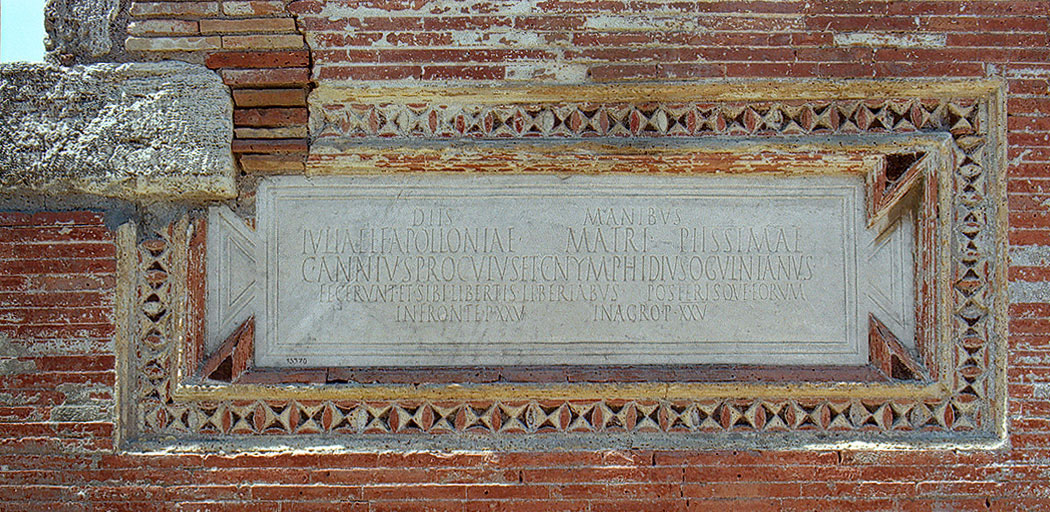
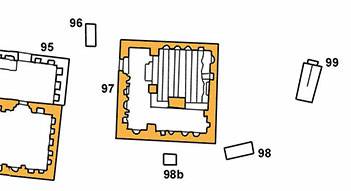
Tomb 97 is detached on all sides. The original door is located on the north side, somewhat to the left of the centre. On the east side of the façade we find an inscription on a marble so-called "tabula ansata" surrounded by a beautiful cornice:
DIIS MANIBVS
IVLIAE L(uci) F(iliae) APOLLONIAE MATRI PIISSIMAE
C(aius) ANNIVS PROCVLVS ET C(aius) NYMPHIDIVS OGVLNIANVS
FECERVNT ET SIBI LIBERTIS LIBERTABVS POSTERISQVE EORVM
IN FRONTE P(edes) XXV IN AGRO P(edes) XXV
According to the inscription this monument was made by Caius Annius Proculus and Caius Nymphidius Ogulnianus for their very pious mother, Iulia Apollonia, daughter of Lucius, and for themselves, their freed slaves, and the descendants.
The measurements of the area are 25 x 25 feet.
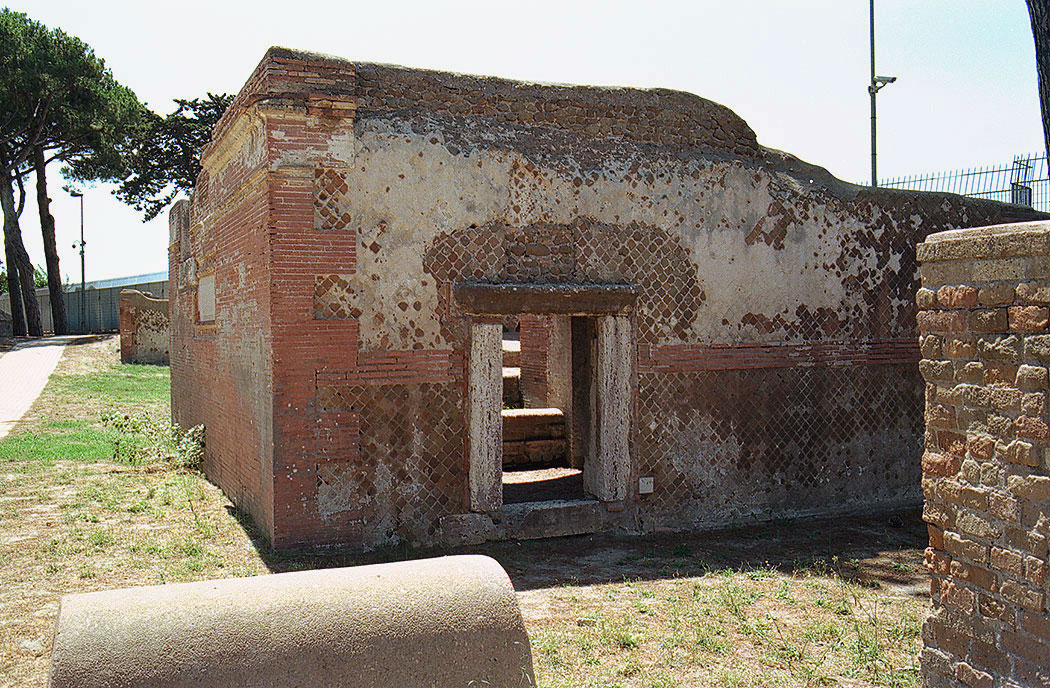
There is no inscription above the entrance of tomb 97. We see, however, a mark in the wall where probably an inscription was attached.
Alongside the façade and both side walls was a nice moulding. A part of the moulding can still be seen on the eastern wall of the tomb.
Tomb 97 is unique in this necropolis.
When we enter the grave via the door on the north side, we are standing in a roofed portico. This portico runs alongside the west and north side of the tomb and consists of three columns with two vaults in between.
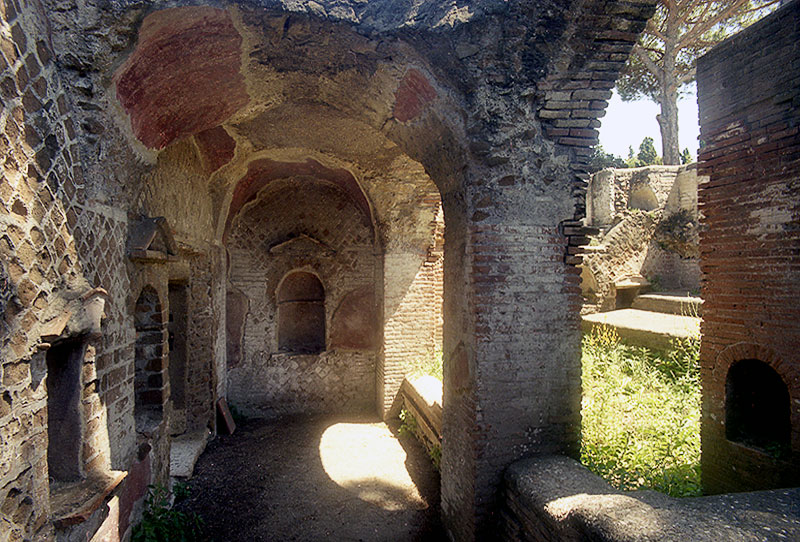
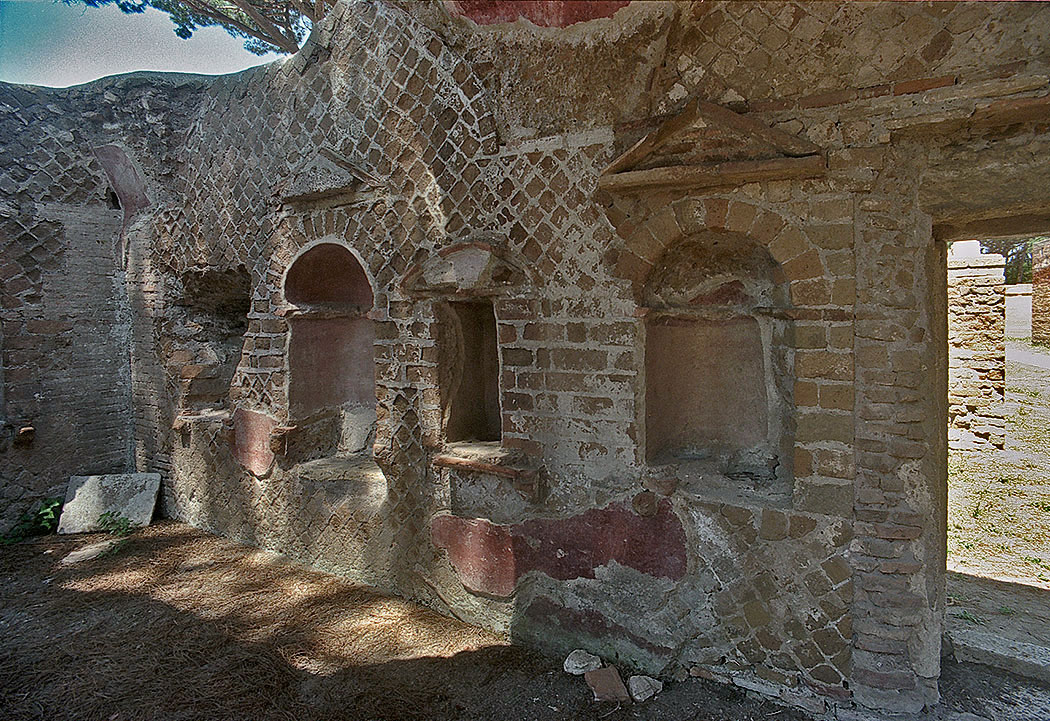
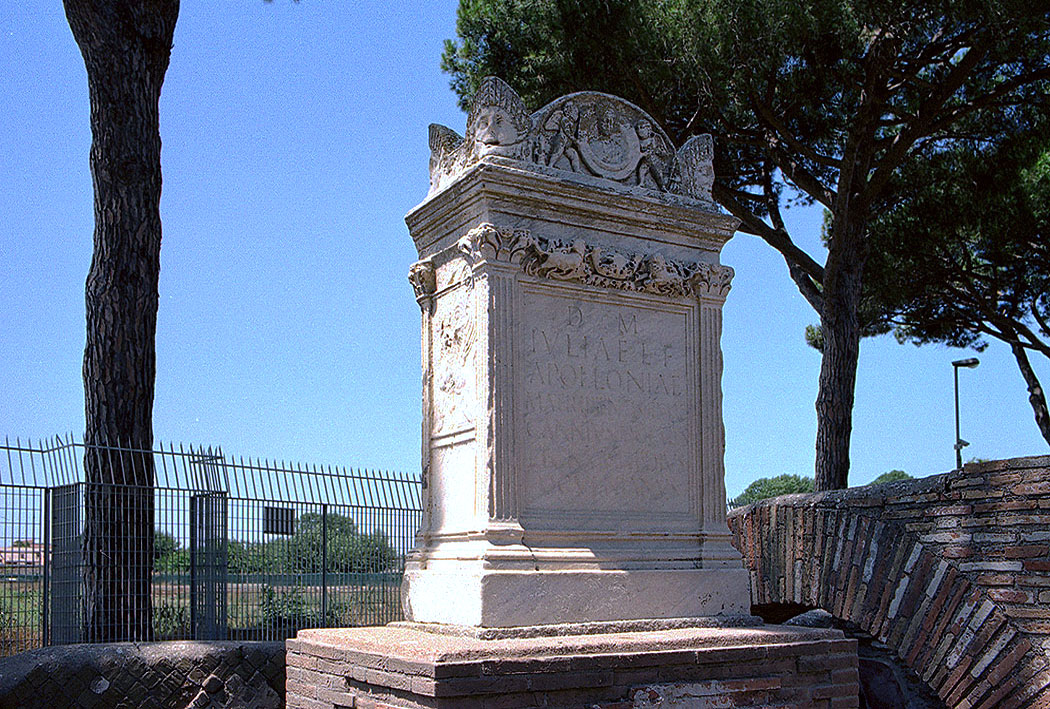
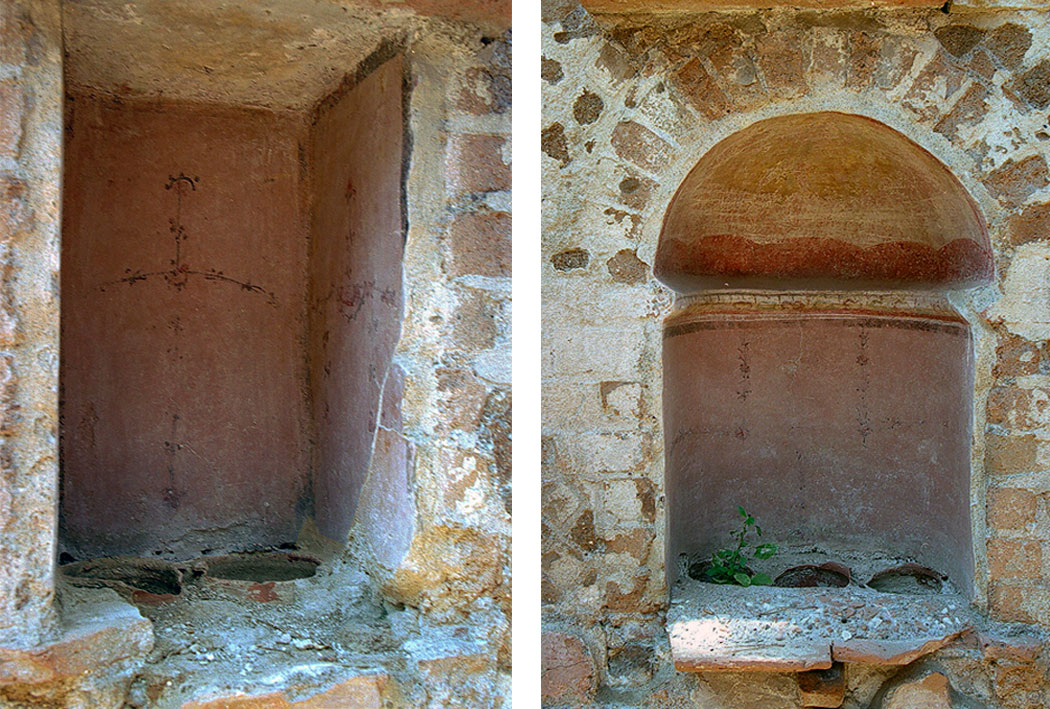
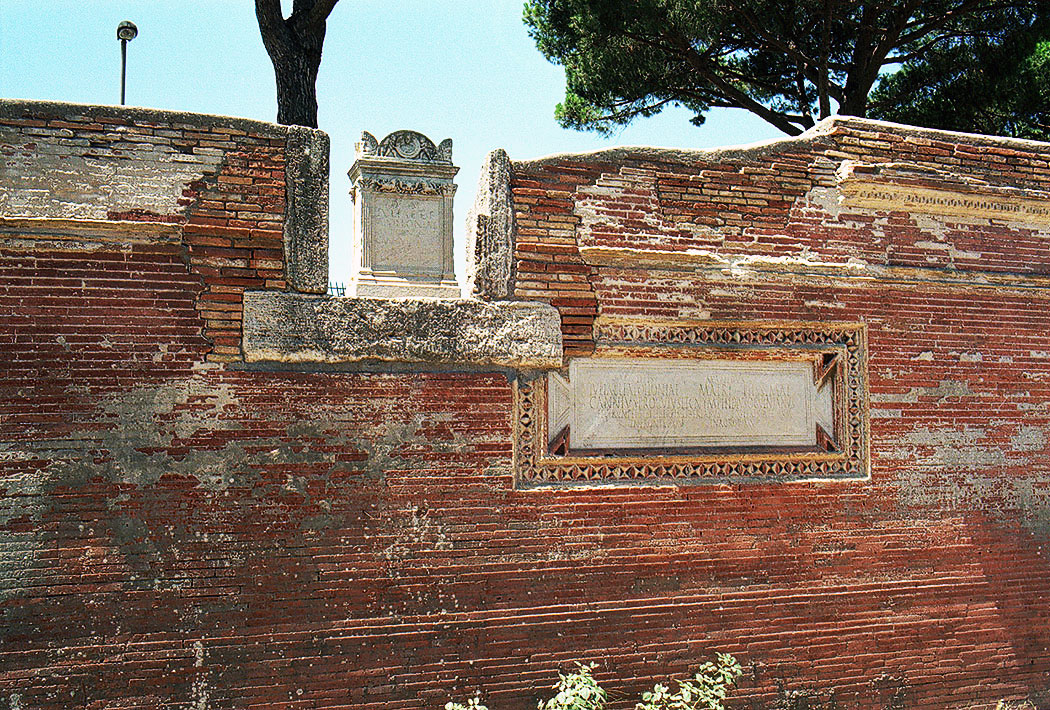
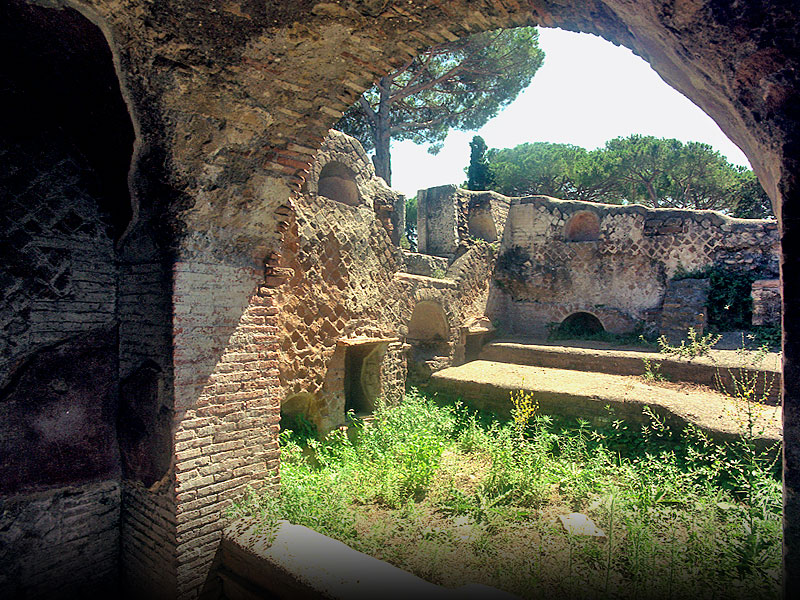
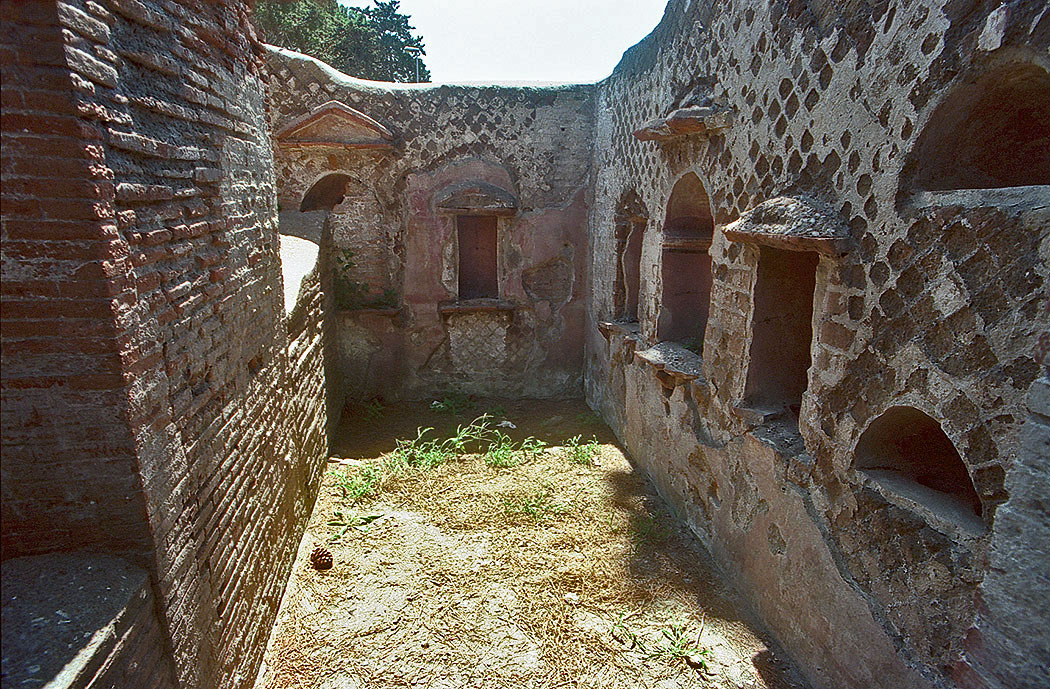
The altar is richly decorated and has grooved columns with capitals, depicting horns of plenty, in top. Between the columns we see a frieze with a bush, a lion, a panther and two griffins. In the tympanum the deceased is depicted with a hairdress from the time of Trajan, the time in which tomb 97 was built. Therefore tomb 97 belongs to the oldest graves in this necropolis. The second period of use dates from the third century AD. On the altar we find the following text:
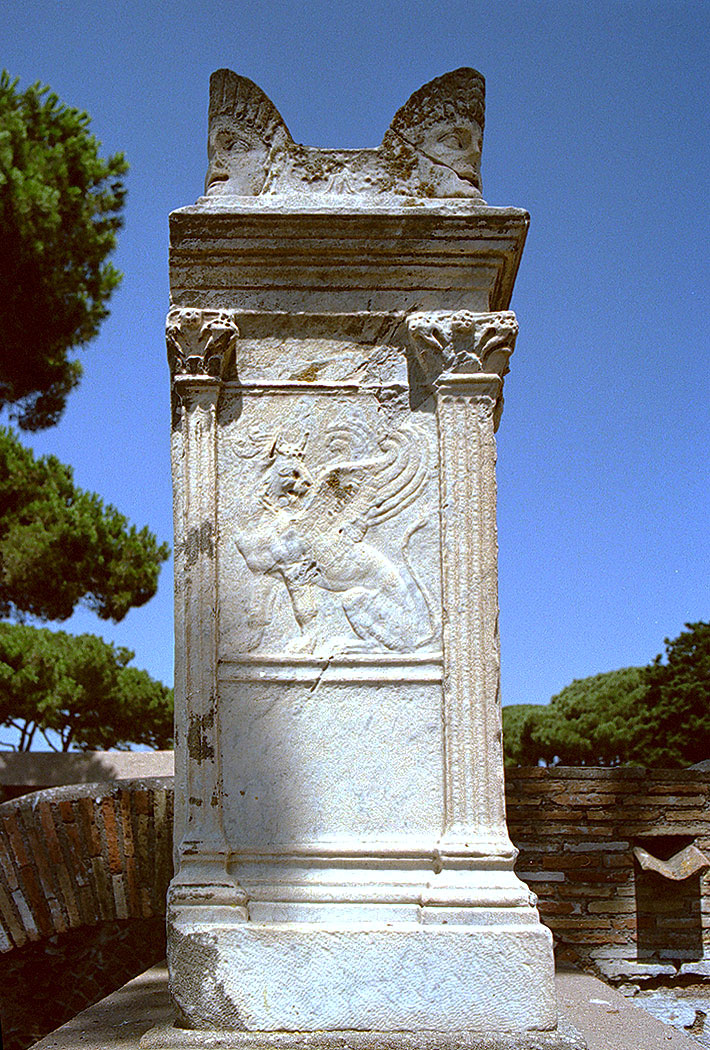 D(is) M(anibus)
D(is) M(anibus)
IVLIAE L(uci) F(iliae)
APOLLONIAE
MATRI PIENTISSIMAE
C(aius) ANNIVS PROCVLVS
ET C9aius) NYMPHIDIVS
OGVLNIANVS
Caius Annius Proculus and Caius Nymphidius Ogulnianus have erected this altar for their very pious mother Iulia Apollonia, daughter of Lucius.
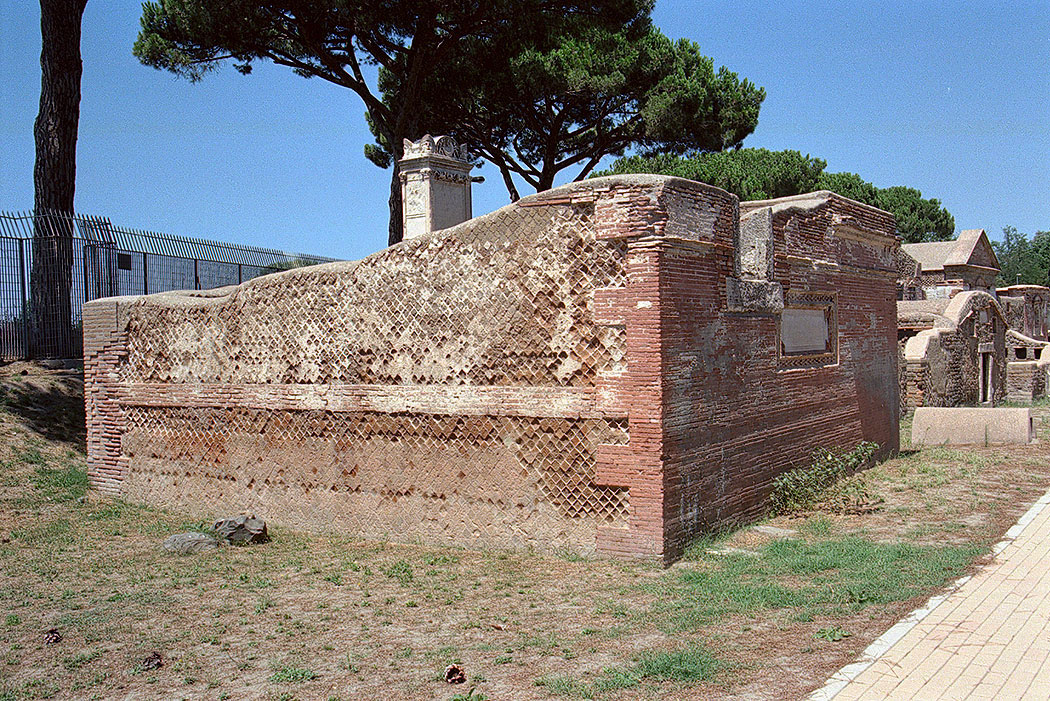
the wall.
- Sources
- Russel Meigs - Roman Ostia, At the Clarendon Press 1973
- Guido Calza - Necropoli nell'Isola Sacra'(1940)
- Dr. Jan Theo Bakker.
- Hilding Thylander - Inscriptions du port d'Ostie (Lund C W K Gleerup 1952).
- Ida Baldassarre, Irene Bragantini, Chiara Morselli and Franc Taglietti - Necropoli di Porto, Isola Sacra (Roma 1996).
Isola Sacra Index

Speciale sectie over de Romeinse begraafplaats van Portus (Engels)....
Read more ...The resurfaced fleet of Pisa

In 1998, an incredible archaeological heritage was discovered by accident near the Pisa San Rossore railway station....
Read more ...Leptiminus
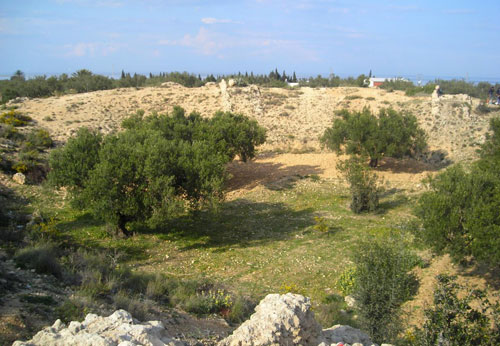
At the site of present-day Lamta on Tunisia's east coast, there was already a port city named Leptis Minor ....
Read more ...Roman maritime trade law

Roman law is the finest monument that Rome bequeathed to Western Europe....
Read more ...Sullecthum (Salakta)

In the Sahel, in the Tunisian province of Madhia, we find by the sea the small town of Salakta....
Read more ...
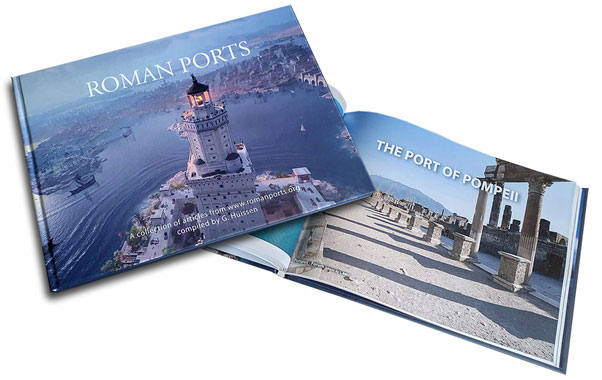
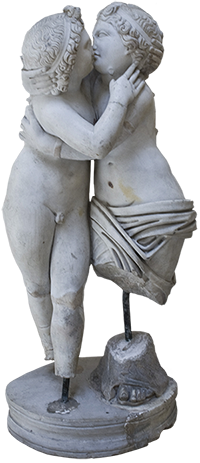 We are committed to providing versions of our articles and interviews in several languages, but our first language is English.
We are committed to providing versions of our articles and interviews in several languages, but our first language is English.